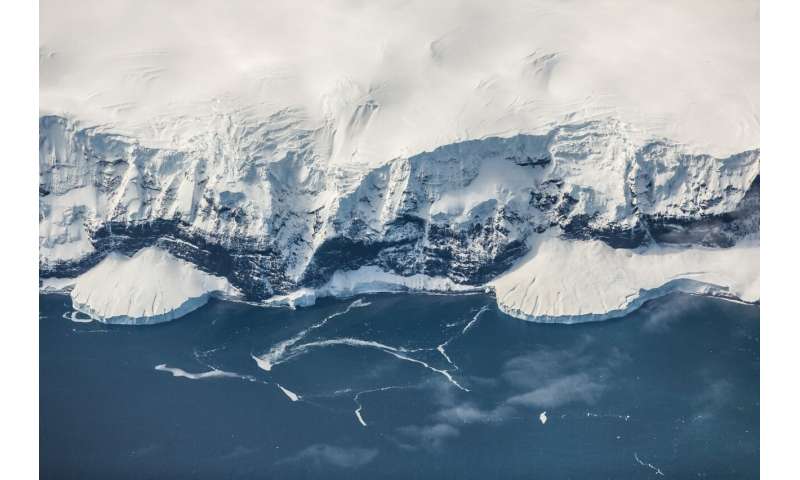Climate research: How stable is the Antarctic ice sheet?

Geologists from the University of Cologne are investigating the influence of past climate and environmental changes on the East Antarctic ice sheet in regions that are ice-free today.
In three expeditions with the research vessel "Polarstern," a consortium of German geoscientists is exploring changes in the East Antarctic Ice Sheet in the geological past. The second of these expeditions was completed on 1 February 2024, and the third is still underway in Antarctica until early April 2024.
The researchers are from the Alfred Wegener Institute, Helmholtz Center for Polar and Marine Research (AWI) in Bremerhaven, the Geomar Helmholtz Center for Ocean Research in Kiel (GEOMAR), as well as the University of Kiel, the TU Dresden and the University of Cologne (UoC).
Together with international partners, the consortium has initiated the "East Antarctic Ice Sheet Instability" (EASI) project. The aim of the research project is to use geological data from the Antarctic continent to the surrounding deep sea to determine how the East Antarctic Ice Sheet will react to current climate change.
Researchers of the University of Cologne contributed to the EASI initiative by reconstructing the glacial history in today's ice-free regions along the East Antarctic ice edge. "We use sediments deposited in lakes, in fjords and on land in these areas and reconstruct the development of climate and environmental conditions from their composition and age," explained geologist Professor Dr. Martin Melles of the University of Cologne.
The researchers are not only focusing on the history of glaciation. In addition, they are reconstructing the climate history, with changes in temperature and precipitation, as well as the regional sea level history. "This not only allows us to better understand the glacial history, but also to decipher the reasons for the different developments in the various ice-free areas," added Melles.
The researchers hope to gain further insights from comparisons with the findings that the consortium will obtain in the Southern Ocean. "Our partners collect data on the ocean currents that transport heat towards land or on the sea ice cover, which better explain the reasons for changes in ice cover on land."
On the recently completed expedition "EASI-2," extensive research was carried out under the leadership of the UoC's geologists in the Vestfold Hills, a 413 km2 large land area on the eastern edge of Antarctica's Prydz Bay.
The team consisted of six researchers from the UoC, the TU Dresden and the Australian universities of Canberra and Adelaide. They focused on the extraction of sediment cores from a lake and a fjord. "We were able to recover sediment cores up to 13 m long at four stations, from which the history of the Vestfold Hills from ice coverage the the ice retreat to today's ice-free conditions can be completely reconstructed for the first time," explained Melles.
The final analysis and interpretation of the extensive data and sample material will be carried out within the framework of a three-year research project.
More than 90% of the Earth's freshwater is stored in the Antarctic Ice Sheet. A complete melting of the Antarctic ice sheet would cause the global sea level to rise by 57 meters and even flood Cologne, with the Rhine meadows at 36.4 meters above sea level. Furthermore, the melting of the ice would change the Earth's heat balance and global ocean circulation, because the bright ice surface reflects large amounts of solar radiation back into space and a large proportion of the bottom water in the world ocean is formed in Antarctica.
A mass loss of the Antarctic Ice Sheet has been observed for several years. According to current climate forecasts, this is likely to increase even further in the future. "The ice sheet reacts very slowly, so that a complete melting of the ice is likely to take several centuries—if not millennia," said Melles. "However, we have to bear in mind that the forecasts are quite uncertain, as the dynamics of the ice sheet today and in the geological past are still poorly understood. Our research can make an important contribution to this."
Provided by University of Cologne